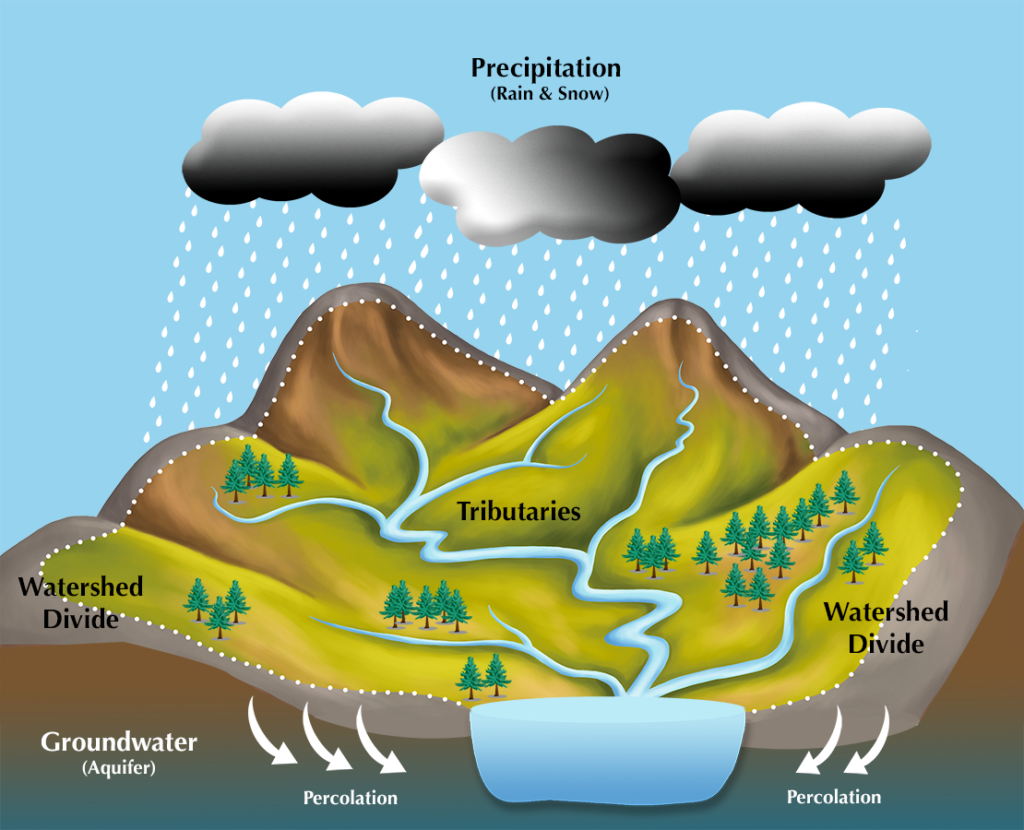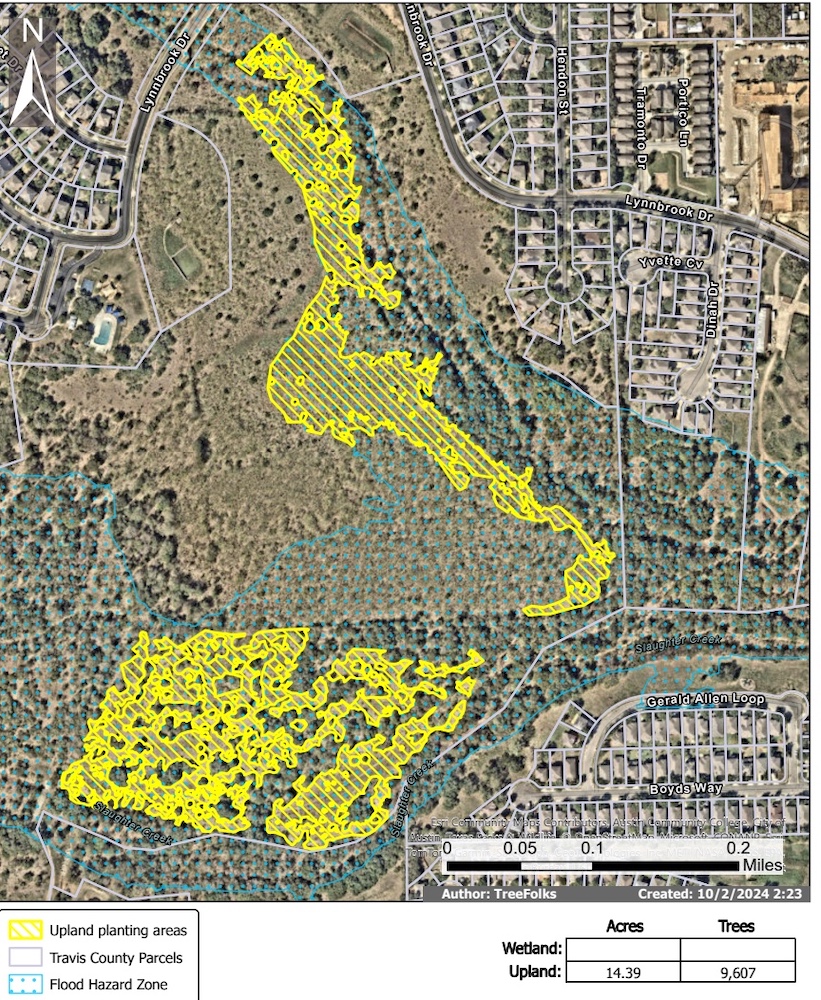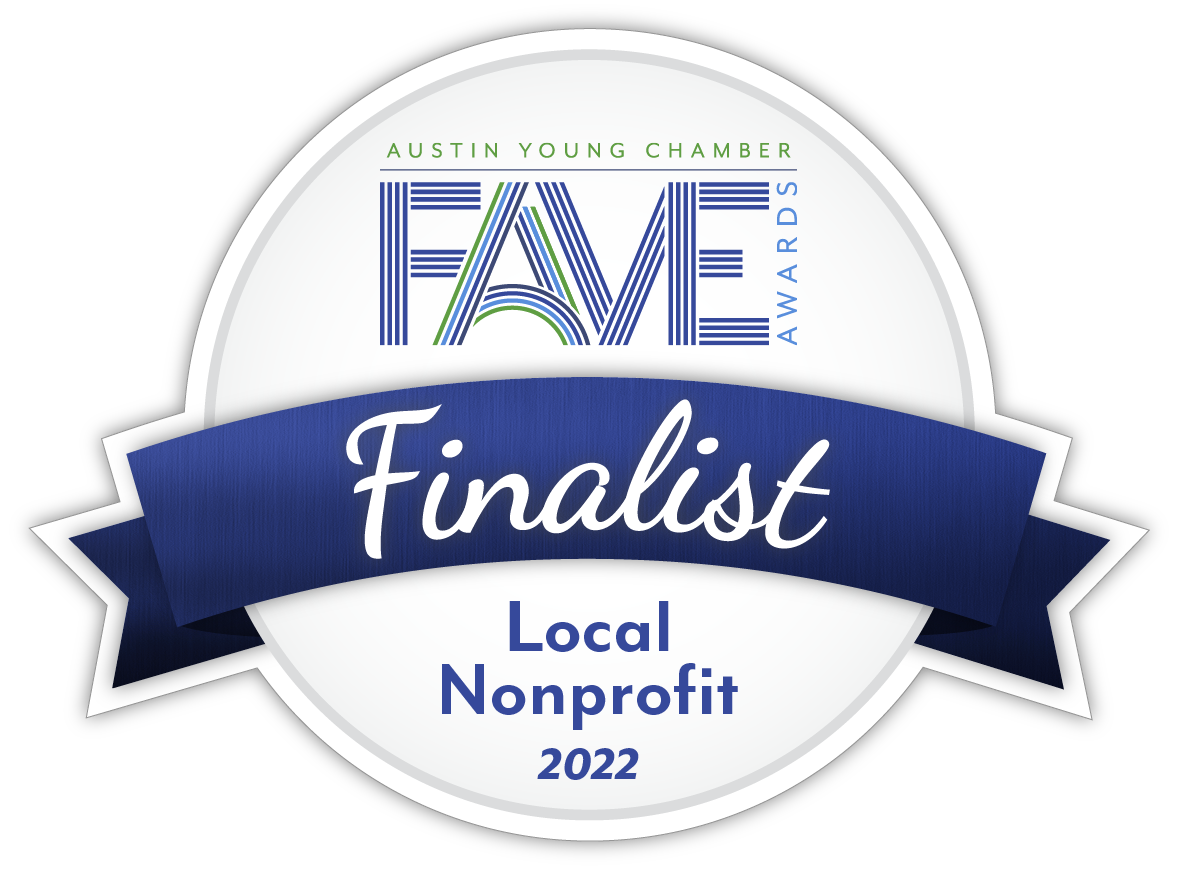City of Austin Watershed Planting Projects
Ensuring green space for generations to come.
Why Park Plantings
Healthy stream corridors provide habitat for a variety of plants and wildlife both on land and underwater. Trees and wild grasses help capture rainwater for aquifer recharge, and contribute to the filtration of stormwater before reaching sensitive streams. Urban creek plantings on city-owned parcels can have a big impact when it comes to restoring large uninterrupted stretches of floodplain land to its natural state. Partnering with the Watershed Protection Department helps reach our mutual goal of restoring creekside forests to provide shade, beauty, and clean water, for generations to come.
Growing a forest can take decades and can appear a bit messy to those accustomed to manicured landscapes. A forest begins with grasses: Tall native grasses are deep-rooted, offering streambank stability and protection to woody seedlings. They also encourage natural recruitment of trees by trapping seeds from upstream and nearby plants, providing a nursery to take root in. Grow Zones are designated areas that have ceased mowing and allow natural vegetation to fill in. Planting projects occur within Grow Zones, adding a variety of native woody and herbaceous species to restore balance to the ecosystem.
Many urban creeks have lost their natural resilience due to the removal of native vegetation and adding impervious ground cover, such as concrete and structures. Mowed grasses, treeless landscapes and impervious ground cover allow runoff to quickly enter streams, cause erosion and allow pollutants to enter waterways.

Bauerele Ranch Park
In 2024/2025, TreeFolks partnered with the City of Austin Watershed Protection Department to plant native tree seedlings and wild grasses on 14.39 acres of floodplain land at Bauerele Ranch Park. This project, along Williamson Creek in south Austin, is intended to increase the diversity of woody and herbaceous species throughout the greenbelt and improve the ability to capture and clean stormwater before entering the sensitive creek. Improving this site will ensure that the greenspace continues to support wildlife and nearby residents for years to come.


Janet Fish Long Park
In 2024, TreeFolks is partnering with the City of Austin Watershed Protection Department to plant trees and wild grasses on 10 acres of floodplain at Janet Fish Long Park along the Harris Branch Greenbelt in northeast Austin. A large portion of this project sits between two creeks and was heavily grazed by livestock until recently. Restoring this site to a woodland forest will provide greenspace for wildlife and nearby residents to enjoy for years to come.

Thanks to this collaborative community effort, this project will help our community and environment by:
- Improving the stability of the creek and helping prevent erosion
- Providing wildlife habitat and improve water quality
- Guaranteeing green space and recreational space for the Agave Neighborhood
- Contributing to Austin’s urban tree canopy
For questions, please contact volunteer@treefolks.org or (512) 761-8738.
The Janet Fish Long Park Planting Project will introduce the following opportunities for the community, in addition to increased canopy cover through reforestation:
Free trees for residents through the NeighborWoods program!
Public planting events with TreeFolks' Ready, Set, Plant! program.
Onion Creek Park
In 2021, TreeFolks partnered with the City of Austin Watershed Department to plant more than 16,000 trees and herbaceous seed mix on 5 acres of converted land in the Onion Creek watershed.
This neighborhood was formerly home to hundreds of Austin residents before it was devastated by the Halloween flood in October of 2013. The City of Austin implemented a voluntary home buyout program to displaced residents to move them out of the hazard-prone area. During the flood, a total of 745 homes were damaged and 4 lives were lost.
The City has removed all of the homes and is allowing portions of the land to return to a natural state. This planting project spans dozens of empty lots along Onion Creek and will provide a more resilient forest buffer during future floods. This now quiet part of town is still used for recreation by nearby residents and provides tree-lined streets and empty greenspace that is able to capture stormwater and protect nearby neighborhoods.


Agave Neighborhood Park
In 2023, TreeFolks partnered with the Watershed Protection Department and the Agave Neighborhood to plant 13.41 acres of young trees along the creek that runs through the Agave Neighborhood Park. This reforestation effort will create a beautiful shaded green space for generations to come and support the health of our neighborhood creek and the benefits like reducing the impact of heat waves, supporting clean flowing creeks, and protecting the creeks from erosion and degradation.


Ways to Get Involved:
NeighborWoods
Through TreeFolks’ NeighborWoods program in partnership with the City of Austin and Austin Energy, all Austin residents can apply to get free trees! The NeighborWoods program provides free trees to Austin residents through free tree giveaway events and tree deliveries to your doorstep! You will get to choose from a variety of native species and some fruit trees. You can find all the details and register here.
Ready, Set, Plant!
Ready, Set, Plant is a riparian sapling program that takes place from November to February. Each year, this program plants 10,000 saplings with the help of volunteers and tree lovers across Austin! You can learn more about RSP! and how to get involved here.


